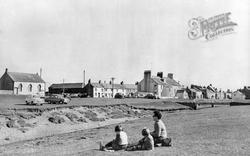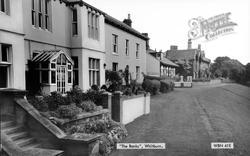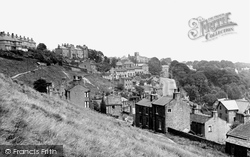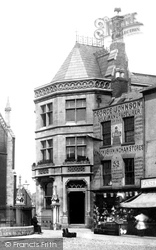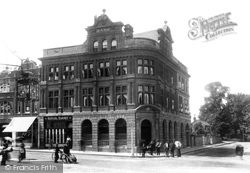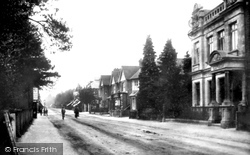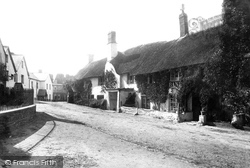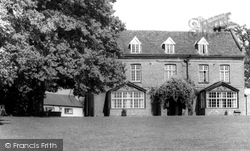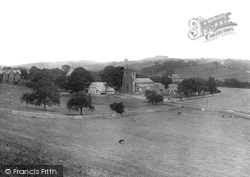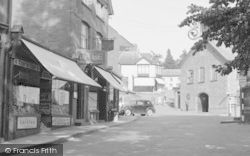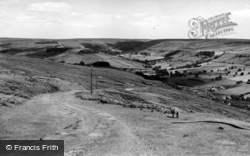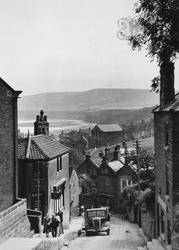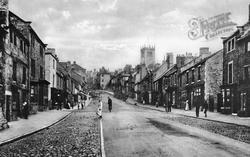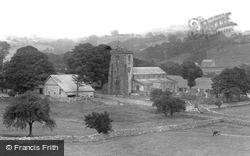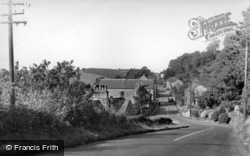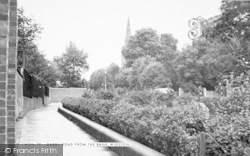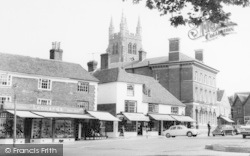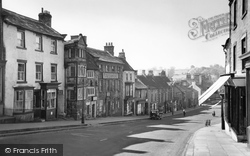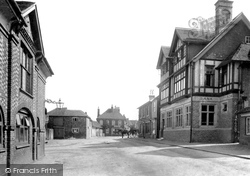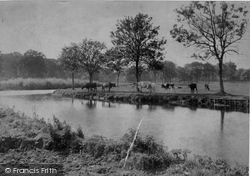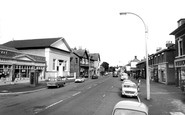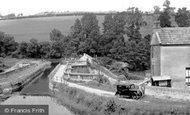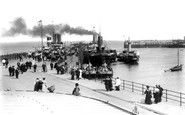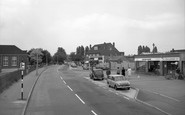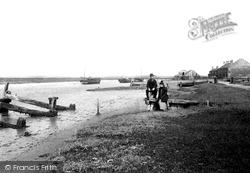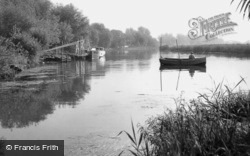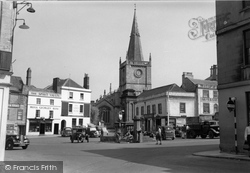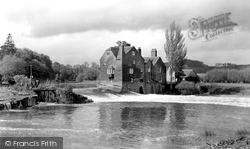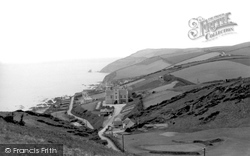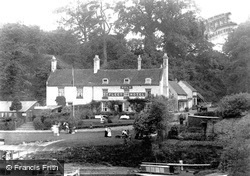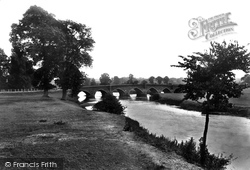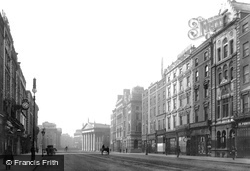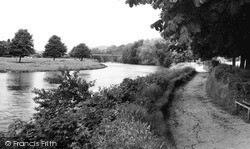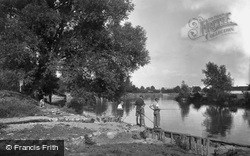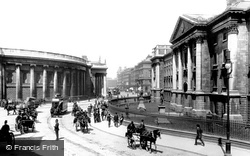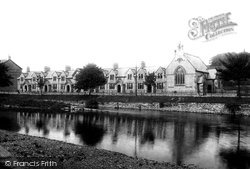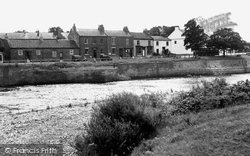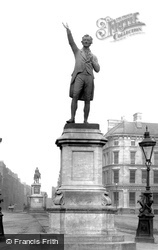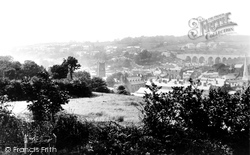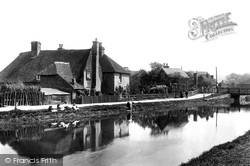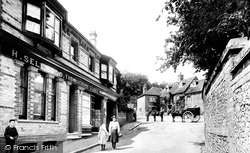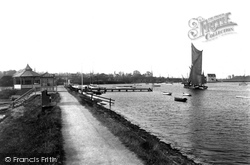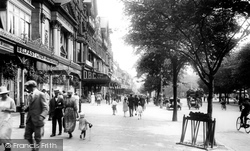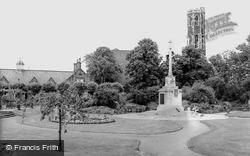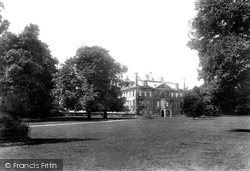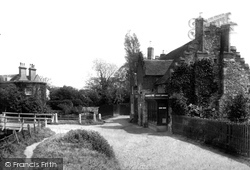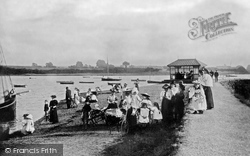Places
3 places found.
Those places high-lighted have photos. All locations may have maps, books and memories.
Photos
68 photos found. Showing results 21 to 40.
Maps
12 maps found.
Books
15 books found. Showing results 25 to 15.
Memories
7,562 memories found. Showing results 11 to 20.
Little Hills Pit Lane
Born 1937 Kiveton family. Remeber getting on the bikes with my friends, riding over what we called the little hills down the pit lane to the tunnel top. Carrying an old clothes horse and a blanket, that was our tent. ...Read more
A memory of Kiveton Park in 1940 by
Amenities The Good Old Days And They Were!
Brown Edge was a brillant place to live, and I have fond memories of the village. Perhaps in my youth I did not really appreciate what I had, the village store (Keiths), the butchers, Harrisons and Sammy ...Read more
A memory of Brown Edge in 1969 by
Croxley Station 1940 1945
Hi, my name is Brian Nicoll. My mother, father and I lived in 10 Frankland Rd from 25/9/35 when I was born until 1956 when I got married. As a small boy I used to have a friend called Roger Gosney who lived over the ...Read more
A memory of Croxley Green in 1940 by
Little Sutton Shops
The church was the Presbyterian and the fruit and veg shop also sold fish (Tommy Jones, fish). There was a furniture shop (Flackets) On the corner of Ledsham was Miss (although a Mrs.) Locket’s. Over Ledsham past the ...Read more
A memory of Little Sutton in 1967
Canter Across The Canal
It must have been around the late 1960s, early 1970s when my sister and I used to ride our ponies down to Avoncliff. We lived a short distance away in Upper Westwood and our mother liked us to ride along the tow path as it ...Read more
A memory of Avoncliff in 1970 by
So Many Happy Hours
I spent so many happy summer holidays in Great Barton, and in particular Conyers Green where my Aunt Norah Lovelace lived in a cottage next to the old chapel building. I cycled often to the village store/post office, and ...Read more
A memory of Conyer's Green by
Tithby Or Tythby
I used to live in the village of TYTHBY, spelled with a Y and not an I. I did not even know that there was another village close by with a similar name. But I have checked on the computer and there it is, not too far away in the ...Read more
A memory of Tithby in 1944 by
Post Office
I was born in Hereford in 1952 to Roland S G Hodges and Doreen his wife. I have fond memories of Kings Caple and Fawley. My grandmother ran the village post office for nearly 40 years right up to decimalization. She ran her Post ...Read more
A memory of King's Caple in 1960 by
Visiting The Isle Of Man Railway
Two of my friends i(Bob and Tony) n our Manchester University Hall of Residence were both train buffs and motorcyclists so one early summer weekend in 1967 we rode our bikes on a Friday evening down the "East Lancs ...Read more
A memory of Douglas in 1967 by
Cippenham Schools
School on left, Westgate wasn't the only school but it is the only one I never went to. Below was the Primary and Junior, this was the Senior till 1953 when Haymill was built. Whilst building it was Junior but when finished ...Read more
A memory of Cippenham in 1950 by
Captions
2,501 captions found. Showing results 25 to 48.
This couple passing the time of day, or maybe waiting for the ferry to take them across the river to Southwold, are on the bank of the River Blyth.
Moored at the jetty are a number of boats; on the banks are reeds, rushes and alders, good nesting places for small birds, ducks and swans.
St Andrews church, Chippenham, viewed from the market place.
Yet another of Worcestershire's imposing old mills stands on the banks of the River Avon near to Fladbury.
The large building is the Whitsand Bay Hotel; it used to stand at Torpoint on the banks of the Tamar, but was dismantled and re-erected here.
The tea gardens and inns which line the banks of the Severn are a favourite place to pause for locals and visitor alike.
Wimborne enjoys a delightful setting close to the banks of the River Stour.
This shows the bank designed by Archibald Simpson (1839), topped with a statue of Demeter, and a large block of houses by John Smith (c1810), showing Smith's characteristic recessed, curved corner.
The imposing Greek portico is the east front of the Bank of Ireland, originally the entrance to the House of Lords of the Irish Parliament, erected by James Gandon in 1785.
Here we see Conigar Walk running down the bank of the River Usk.
Old Laleham stands back from the reaches of the Thames, and the early boating fraternity used to enjoy catching glimpses of it from the water.
On the left of this view is Trinity College, which dates from 1759 and is 300 ft in length.
Kendal Grammar School sits alongside the banks of the River Kent.
A line of mainly 18th- and 19th-century cottages line the banks of the mighty River Tees at Croft-on-Tees, a small settlement to the south of Darlington and very close to the borders of County Durham.
This statue of Henry Grattan (1746 - 1820) stands outside the Bank of Ireland (formerly the Parliament House) and shows the great orator in the act of speaking.
Tavistock, one of Devon's three original Stannary Towns, lies on the banks of the Tavy, which rises high on the moors near Cut Hill and flows into the Tamar upstream of Tamerton.
Four young children, seated on the bank of the Stour, are mirrored in the tranquil waters, while to their left, another adult resident stoops to fill a bucket.
This photograph captures the atmosphere and feel of the village around the turn of the century. Sir John Soane, who rebuilt the Bank of England, was born here.
The bank of the river Deben. Just to the right of the sailing barge is Woodbridge tide mill, the later model of a tide mill which has stood here since the early 12th century.
The classical-style building on the left is the Midland Bank, claimed by many to be one of the town's finest buildings.
In the grounds of Greyfriars are the Bank Lane arches. Previously, this part of Greyfriars had been used to house cattle and other farm animals awaiting market.
Set in magnificent parkland, Kingston Lacy was built in Chilmark stone and designed by Sir Roger Pratt for the Bankes family; they owned it until 1982, when it was left to the National
On the banks of the Little Stour, whose waters flow peacefully under the bridge on the left, the small general stores and post office on the right served this little hidden village with its 18th- and 19th-century
This group of children and their parents or nannies is enjoying the sun and fresh air on the bank of the River Deben.
Places (3)
Photos (68)
Memories (7562)
Books (15)
Maps (12)


